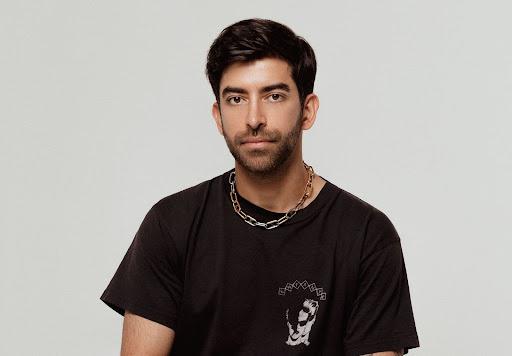Tekin Salimi, founder of dao5
Tekin Salimi, founder of dao5
Few saw the promise of DAOs in their early days as well as Tekin Salimi. In late 2017, Salimi, a corporate lawyer turned venture capital investor at Polychain Capital, published an essay detailing how the leaderless investing collectives known as decentralized autonomous organizations could disrupt traditional business models.
Back then, DAOs were scarce. Too fresh was the memory of the $50 million hack of The DAO back in 2016, one of the earliest experiments adopting the decentralized form of governance. Now there are over 4,000 of them, according to DeepDAO, tending a collective $10 billion in their treasuries. And Salimi is finally making a move.
Soon he will announce the launch of a $125 million venture fund called “dao5”, with plans to convert it to a DAO by 2025. The fund will invest in seed and pre-seed stage companies and projects across a variety of verticals in the crypto industry, including the so-called “Layer 1” blockchain infrastructure, which supports networks such as Ethereum and Solana, privacy tech, decentralized finance, DAOs themselves, gaming, and NFTs. The average investment will fall between $500,000 and $2 million.
Ultimately, Tekin hopes to transition the fund into an organization befitting of its name. “The goal of dao5 is to explore a new model to bootstrapping a DAO,” says Salimi, “by focusing first on talent and capital acquisition through venture investing, and second on growing the treasury value through leveraging the collective talent of the dao5 community.”
What that means in practice is that whenever dao5 will invest in a new project, the founder of that project will receive a grant of governance tokens in the future DAO. Over time, portfolio founders will have financial exposure to each other’s work and a direct incentive to work together (something that venture capitalists already encourage their portfolio companies to do with each other). Upon conversion, the legal entities that comprise the fund will be dissolved, and tokens will be minted and issued to the fund’s investment team, advisory board, and portfolio company founders.
However, today these plans seem largely aspirational as Salimi is only able to offer scant details when it comes to the specifics of tokenomics, governance, and other key operational factors. For instance, one major question to be determined is whether these tokens will be transferable or how they will operate within the world of Web 3.0 to incentivize collaboration. Missing this piece, the ‘DAO’ could end up simply being a tokenized bonus pool or marketing endeavor.
He admits that much of this future roadmap is TBD and is betting that the industry will ultimately deliver some of the tools and regulatory clarity he needs to make this work.“We have around three years to figure it out and get it entirely right,” he says.
To aid its efforts, dao5 has gathered a high-profile board of advisors, which includes Emin Gün Sirer, the founder of the Avalanche protocol, Do Kwon, the founder of the Luna protocol, and Meltem Demirors, chief strategy officer at CoinShares, among others. Salimi did not disclose whether his former employer Polychain has backed the fund.
Meanwhile, other venture capital investors are also warming up to the concept of DAOs. Last week, 111-year-old investment firm Bessemer Venture Partners launched a DAO under its own name.
Credit: Source link


Comments are closed.